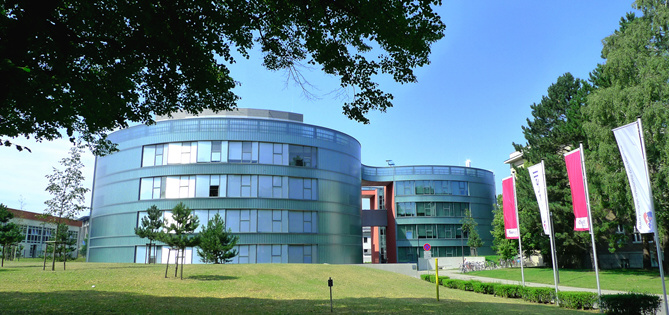Nat Genet. 2000; 26:464-469.
Role of the p53-homolog p73 in E2F1-induced apoptosis.
Stiewe T, Pützer BM.
Most human cancers harbour aberrations of cell-cycle control, which result in deregulated activity of the E2F transcription factors with concomitant enhanced cell-cycle progression. Oncogenic signalling by E2F1 has recently been linked to stabilization and activation of the tumour suppressor p53 (refs 1,3,4). The p73 protein shares substantial sequence homology and functional similarity with p53 (refs 5-7 ). Hence, several previously considered p53-independent cellular activities may be attributable to p73. Here we provide evidence that E2F1 directly activates transcription of TP73, leading to activation of p53-responsive target genes and apoptosis. Disruption of p73 function by a tumour-derived p53 mutant reduced E2F1-mediated apoptosis. Thus, p73 activation by deregulated E2F1 activity might constitute a p53-independent, anti-tumorigenic safeguard mechanism.

Kontakt
Institut für Experimentelle Gentherapie und Tumorforschung
Core-Facility Virale Vektor & Genom-Editing Technologien
Biomedizinisches Forschungszentrum
Schillingallee 69
D-18057 Rostock
Sekretariat
Ingrid Winkler
(+49) 381 494-5066(+49) 381 494-5062
ingrid.winkler@med.uni-rostock.de
Department Leben, Licht & Materie
Forschungsbau LL&M
Albert-Einstein-Str. 25
D-18059 Rostock
Forschungsbau LL&M
Albert-Einstein-Str. 25
D-18059 Rostock




